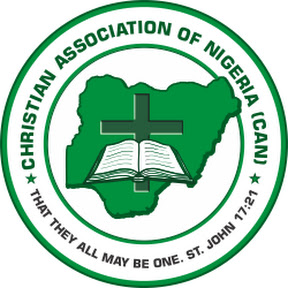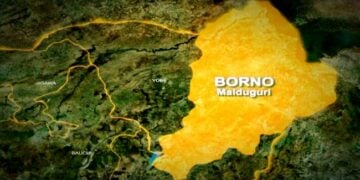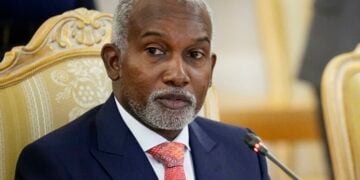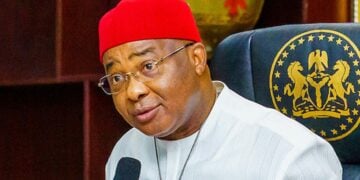The Christian Association of Nigeria (CAN) in collaboration with the Organisation of African Instituted Churches (OAIC), have called on the Federal Government to introduce policies that would favour small holder-farmers in the interest of Nigerians.
CAN President, Archbishop Daniel Okoh, while speaking at a workshop on climate change adaptation for small-holder farmers in Nigeria, with the theme: ‘Adaptation for Small-Holder Farmers and Responsive Policy: A Faith-base Response’, on Tuesday in Abuja, called on churches to contribute to federal government’s policies in the interest of small-holders farmers.
Okoh advised that when the church and government talk about food security, they should look at the small-holder farmers, because they are producers of food Nigerians eat, and anything that affects them, affects people in the highest social level and even to the Presidency.
“We must find a way to stand in the gap for small holder farmers. Majority of them are members of our churches and when they complain, we as leaders should not throw our two hands in the air, with a sense of helplessness.
“The scripture empowers us not to only pray, but to take action, and to be able to win the confidence of the small-holder farmers. We believe that the church must engage government on policies, and get involved in policy making. We must make our input in governace.
“I must give it to the government, there is no government in Nigeria that does not listen to CAN, we have a voice in governance. But we see ourselves as an organisation that plays complementary roles to the effort of government to enhance the wellbeing of our people,” he said.
The CAN President further called on the church to lift the hands of the small holder farmers, and raise them around the table of policy making, because there may be policies that favour them without their knowledge.
“We should watch the policies of government. The church should move closer to government, so that when policies come out, we do not only applaud policies because it looks good. But, we must have a critical look, particularly on this climate change adaptation on how it affects the small holder-farmers.
“Small scale farmers can feed Nigeria, if not for the insecurity situation we have in this country, food would have been the cheapest thing in Nigeria. That is another way we can engage government, because we know that in the whole of the north, people no longer go to the farm,” he said.
Earlier, OAIC Nigeria Region President, Elder Israel Akinadewo, while speaking during the workshop said that according to recent statistics, small holders make up a significant proportion of the world’s rural population with over 500 million individuals relying on small-scale farming for their livelihoods.
“Their wellbeing is intrinsically linked to the social, economic and environmental fabric of our societies. Therefore, it is imperative that we focus our attention on understanding and addressing their unique needs, challenges and aspirations.
“Responsive public policies serve as the catalyst for change, enable Small-Holder farmers to adapt and thrive in the face of adversity. By nurturing an enabling environment, policymakers can empower farmers with access to land, credit, markets and technology,” Archbishop Okoh stated.










